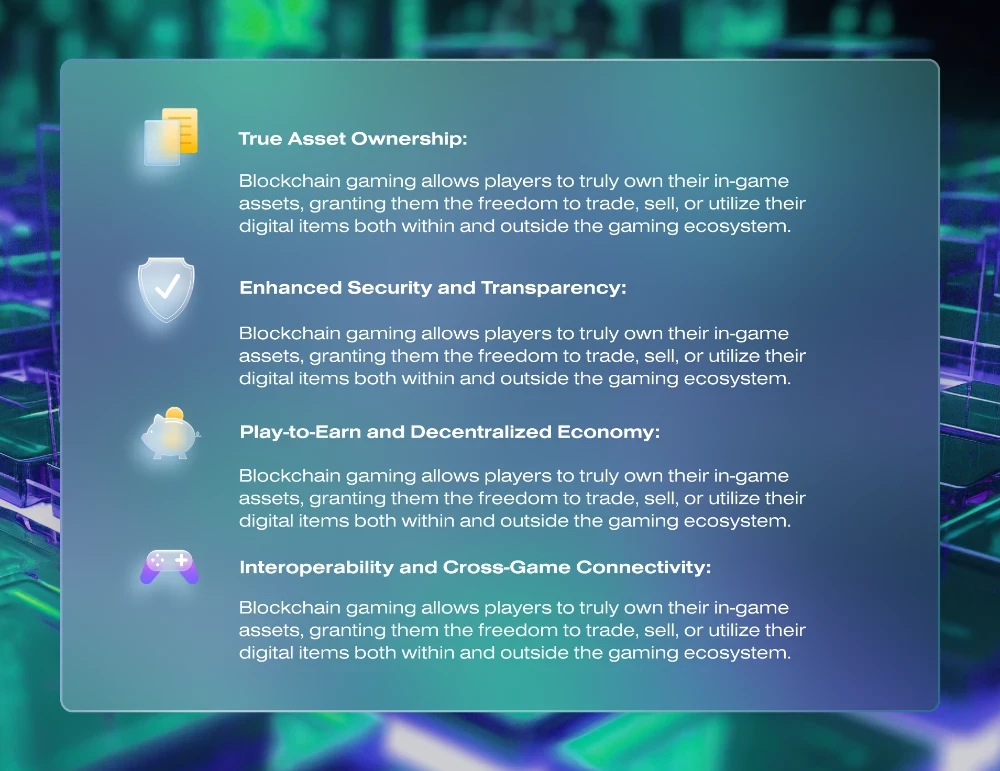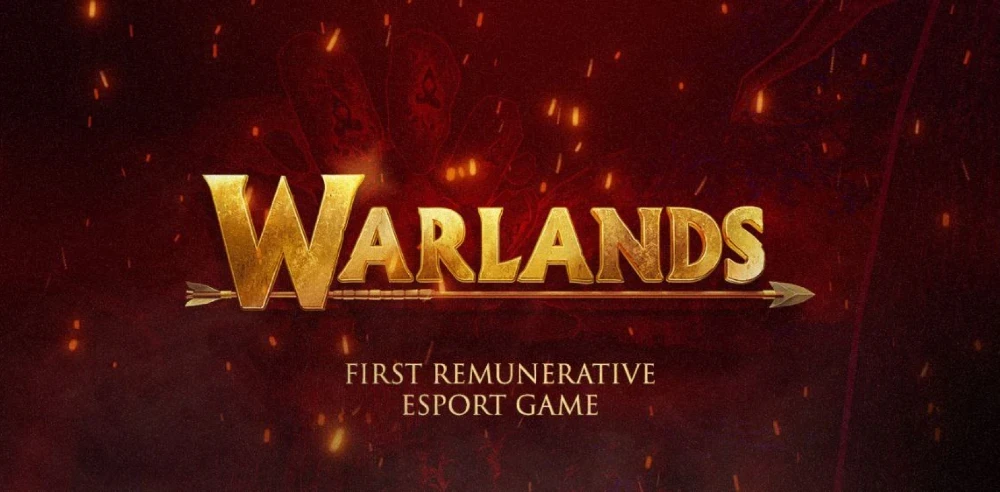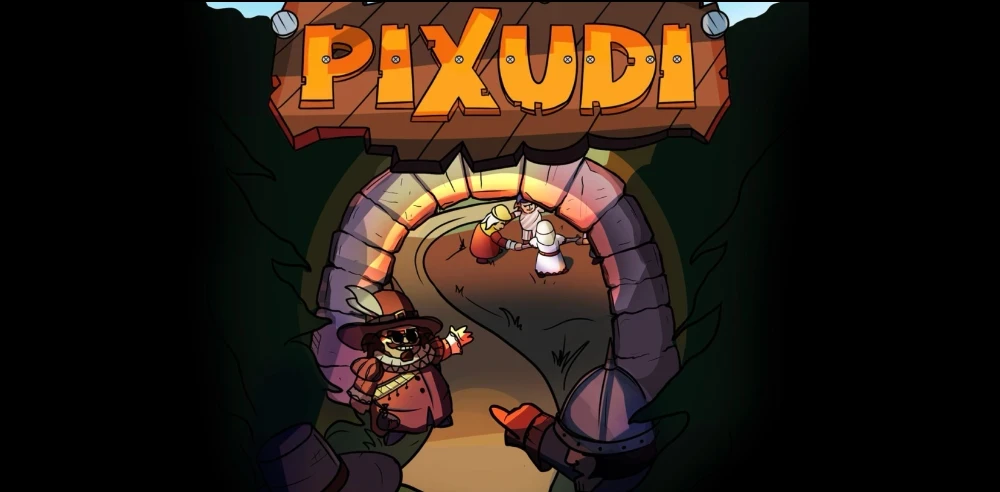Exploring the Impact of Blockchain Technology on the Gaming Industry
Marketing, Technology 8 min reading
Content
Show-
GameFi Stands for Gaming in Web3
- What is GameFi and How Does it Work?
-
Role of Blockchain for Games
- Blockchain Gaming's Impact
- What are the Risks and Challenges of Blockchain in Gaming?
- The Future of Blockchain Gaming
- Velas' Approach for Blockchain Gaming
-
Overview of P2E Games on Velas
- Warlands
- Pixudi
- Conclusion
Explore more from Velas

Technology 1 min reading
Velas Expands Cross-Chain Bridging to AvalancheExciting news for the Velas community! We're thrilled to announce that Velas has extended its cross-chain interoperability by enabling bridging to Avalanche, a prominent blockchain platform known for its high throughput and low fees.

Technology, Engineering 1 min reading
Smart Contracts on SteroidsWelcome to the latest edition in our series, Exploring Velas' Innovative Technologies. Throughout this series, we delve into the cutting-edge technologies propelling Velas forward as a leading blockchain platform, reshaping the landscape...


The gaming industry has always been at the forefront of technological innovation, captivating millions of players worldwide with immersive experiences and thrilling adventures. However, a new revolution is taking place within the gaming realm, as blockchain technology emerges as a game-changer. Just as we explored the impact of blockchain in carbon credits and payments in our previous articles, it is now time to delve into how blockchain is transforming the gaming industry.
According to data from DappRadar , the blockchain gaming market continues to show immense potential, with a projected value of $435 billion by 2028 and a compound annual growth rate (CAGR) of 12.1% from 2022 to 2028. These figures indicate the dynamic nature of the blockchain gaming industry and the opportunities it presents for both developers and players alike.
GameFi Stands for Gaming in Web3
Blockchain-powered gaming, often referred to as GameFi (Game Finance), represents a new paradigm that combines the world of gaming with decentralized finance (DeFi) within the Web3 ecosystem. While traditional gaming primarily focuses on entertainment and skill development, GameFi introduces economic incentives and financial opportunities for players through play-to-earn blockchain games. This transformative model allows gamers to not only enjoy the thrill of playing but also to earn cryptocurrency and truly own their in-game assets.
What is GameFi and How Does it Work?
At its core, GameFi utilizes blockchain technology to create decentralized gaming platforms and marketplaces where players can engage in various activities and earn cryptocurrency rewards. These platforms often employ gaming tokens or non-fungible tokens (NFTs) as in-game assets, which can represent virtual land, avatars, weapons, costumes, or even currency traded on cryptocurrency exchanges. Farkhad Shagulyamov, CEO of Velas, a leading blockchain platform, explains the GameFi concept:
“GameFi merges the best of both worlds by leveraging blockchain technology to enable players to earn valuable assets and participate in a vibrant decentralized gaming economy. It opens up new possibilities for gamers to monetize their skills and time spent in virtual worlds.”
In GameFi, players can earn tokens or NFTs by participating in various activities within the game, such as completing quests, winning battles, or staking tokens. These digital assets can be used to enhance the gameplay experience, traded with other players, or exchanged for other cryptocurrencies or fiat currencies. Additionally, some GameFi platforms offer additional DeFi features like yield farming, staking, and liquidity supply, further enhancing the earning potential for players.
Role of Blockchain for Games
Blockchain, the decentralized and transparent technology behind cryptocurrencies, is now making its mark on the gaming industry. By leveraging blockchain, game developers can introduce elements such as true asset ownership, decentralized marketplaces, and play-to-earn models, revolutionizing the way players engage with and benefit from games.
Blockchain Gaming's Impact
The impact of blockchain on the gaming industry has been remarkable. Let's explore the benefits that blockchain brings to the gaming ecosystem:

Looking to launch your gaming business? Look no further than the Velas Blockchain. With its remarkable impact on the gaming industry, Velas offers fast transactions and low fees for the remarkable gaming experience of your players.
What are the Risks and Challenges of Blockchain in Gaming?
While blockchain brings numerous advantages to the gaming industry, it is not without its challenges. One of the primary concerns is the complexity and technical barriers associated with blockchain technology.
Integrating blockchain elements into games like Plinko requires specialized knowledge and expertise, making it a daunting task for many game developers. Additionally, the scalability of blockchain networks and high transaction fees remain areas that need further improvement to accommodate the growing demand for blockchain gaming.
Another significant challenge lies in regulatory and legal considerations. As blockchain technology and cryptocurrencies continue to gain traction, regulatory frameworks are still evolving, and game developers must navigate the legal landscape to ensure compliance. Clear guidelines and regulations regarding the issuance and trading of in-game assets, cryptocurrencies, and NFTs are essential for the sustainable growth of the blockchain gaming industry.
The Future of Blockchain Gaming
The future of blockchain gaming is highly promising, with significant growth and mainstream adoption anticipated in the coming years. As more businesses embrace blockchain technology, traditional game developers are likely to incorporate it into their games, driving increased adoption across the industry.
The use of blockchain-powered non-fungible tokens (NFTs) holds great potential for shaping the future of the gaming sector. By granting users increased power and ownership over their virtual assets, blockchain-based games can enhance player experiences. These games can utilize NFTs to verify players' identities and eliminate bad actors, thereby creating a safer and more transparent gaming environment.
Furthermore, the greater integration of blockchain gaming with decentralized finance (DeFi) holds immense potential. Incorporating advanced DeFi features like staking, yield farming, and liquidity provision into blockchain games can enhance the financial aspects of gaming, allowing players to earn rewards and actively participate in the decentralized economy within the gaming ecosystem.
As the gaming industry continues to embrace blockchain technology, it has the potential to offer innovative and thrilling new experiences to players, all within a sustainable and decentralized environment. The future of blockchain gaming is poised for growth, and the industry is on the cusp of transformation. Only time will reveal the extent of its impact on the gaming landscape.
Velas' Approach for Blockchain Gaming
Velas Blockchain offers compelling advantages for developers, players, and the blockchain gaming market in general. For developers, the Velas platform provides a fast execution environment for smart contracts, enabling the creation of decentralized applications, non-fungible tokens (NFTs), marketplaces, decentralized exchanges (DEX), and DeFi projects. Simultaneously, with transaction speeds of 1.2 seconds and high transaction finality, Velas supports over 50,000 transactions per second, ensuring high performance and efficiency for players.
For players, Velas Blockchain offers true ownership of in-game assets, allowing for seamless trading, selling, and utilization both within and outside the gaming ecosystem. This opens up new possibilities for monetizing gaming achievements and creates a more engaging and rewarding gaming experience with the potential to earn cryptocurrencies.
Experience the advantages of Velas Blockchain for yourself and join the thriving blockchain gaming community. Whether you're a developer looking to create innovative projects or a player seeking true ownership and rewarding gaming experiences, Velas provides the ideal platform. Explore the limitless possibilities of blockchain gaming with Velas today.
In the next section, we will explore some notable play-to-earn (P2E) projects on the Velas blockchain, providing an overview of how blockchain technology is shaking the gaming industry and enabling players to monetize their gaming experiences.
Overview of P2E Games on Velas
We are pleased to showcase our diverse range of GameFi projects on the Velas Blockchain. Our platform offers a unique blend of gaming experiences that allow players to earn real value through Play-to-Earn (P2E) mechanics. With a focus on providing captivating adventures and the opportunity to accumulate cryptocurrencies, we invite you to join us in exploring the enchanting world of decentralized gaming.
Warlands

Prepare to immerse yourself in the dynamic and thrilling world of Warlands, a revolutionary Play-to-Earn (P2E) game that combines the intensity of Battle Royale with the strategic elements of MOBA gameplay.
In Warlands, players are tasked with fighting against rival teams and formidable hero monsters in real-time battles, all while strategically conquering zones by collecting powerful in-game spells, items, and winning battles to earn Warlands Token coins. But that's not all! Expand your arsenal by breeding and hiring new mounts and characters, and witness your guild grow and thrive as you enhance your heroes and reap the rewards of victory.
Warlands is not just another Battle Royale; it is a groundbreaking fusion of blockchain technology and competitive gaming, introducing a new level of accessibility through its Free-to-Play (F2P) format and innovative economic model. Experience the thrill of Play and Earn (PaE), where players can have fun and be rewarded with freeroll tickets, or choose to participate in the competitive Play and Earn format, where strategic ticket purchases become the gateway to sustainable earnings.
Watch out Warland’s page at the Velas Ecosystem - click here .
Pixudi

Pixudi is a traditional race board game built on the blockchain technology. Players compete with each other to, for example, collect the max count of stones (available on event boards Searching for dragon stone)by overcoming obstacles that come their way and completing missions. While the concept of the game is pretty old, the technologies used to implement it are cutting-edge:
- Roll the dice is based on a smart contract to ensure full random;
- All in-game items are NFTs minted on our partner blockchains;
- Each purchase, win and loss are on-chain transactions.
Pixudi combines 2 business models: Free-to-Play and Play2Earn . It means that players don't need to pay any money to start playing but they can earn cryptocurrency by landing on the leaderboard or other ways. There is no Pay-to-Win mechanics but players who spend their tokens in the game, for example on Mystery Packs containing in-game assets, get an easier start and more opportunities to earn tokens, such as participating in paid games with prize pools or tournaments.
Join Pixudi’s whitelist by the link
Conclusion
While challenges exist, including technical complexities and regulatory considerations, the future of blockchain gaming looks promising. As more businesses adopt blockchain technology and traditional game developers integrate it into their games, mainstream adoption is expected to increase. The use of NFTs and the integration of DeFi features further enrich the gaming experience, providing players with financial opportunities and a transparent gaming environment.
So, blockchain gaming has the potential to redefine the gaming landscape, offering innovative and thrilling experiences while empowering players with true ownership and financial rewards. As the industry continues to evolve and overcome challenges, the transformative impact of blockchain on gaming will unfold, opening up a new era of possibilities for both developers and players alike.
Stay ahead of the curve
Add your email to get hand-tailored messages only. We say no to boring newsletters and spam!



